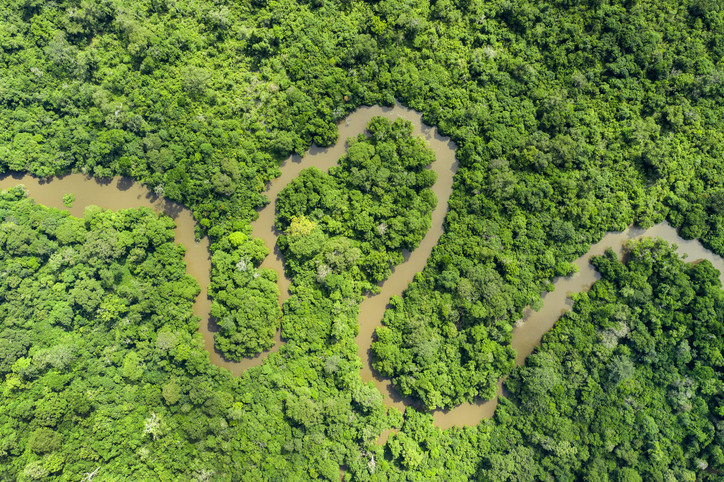Congo Basin rainforest at critical point and requires sustained investment from the international community

The international community must provide long-term investment from public and private sources in the countries that host the Congo Basin rainforest to protect the world’s largest land-based carbon sink, according to analysis published today (17 November 2025) by the Grantham Research Institute on Climate Change and the Environment at the London School of Economics and Political Science.
The report is published as countries at the COP30 United Nations climate change summit in Belém, Brazil, consider the importance of forests in reducing carbon dioxide levels.
The report examines the threat to the Congo Basin forests, the world’s second largest rainforest after the Amazon, which cover more than 300 million hectares across Central Africa. They represent the world’s largest land-based carbon sink, which is vital to efforts to cut the emissions of carbon dioxide that are driving climate change, The forests also provide a unique and vital biodiversity haven, and a source of income for local communities, including some of the poorest people in the world.
In ‘A Fair Deal for the Sustainable development of the Congo Basin Countries and the Protection of their Rainforests’ the authors draw attention to recent figures suggesting that the rate of deforestation has decreased significantly over the past five years, and that it is now less than half, in percentage terms, of that experienced in the Amazon Basin.
Despite the rate of deforestation decreasing, 10% of the forest area of the Congo Basin was lost between 1990 and 2025. There are also signs that the impacts of climate change are beginning to adversely affect the absorption of carbon dioxide by the Congo Basin forests. Given these threats, this is a “critical moment for the forests’ future” the authors state.
The authors point out that the deforestation and degradation is destroying the significant natural capital value of the forests and represents a poor deal for both the host nations and the rest of the world.
The World Bank estimates the global value of the forests’ ecosystem services is US$1.15 trillion per year, and the total asset value is US$23.2 trillion. The yearly value of the Congo Basin’s ecosystem services is far higher than the amount the six main countries earned (US$14 billion) in 2023 from forestry.
To date, the scale of financial resources that have flowed from countries outside the Congo Basin to protect the forests has been inadequate. The governments of the six main Congo Basin nations have been attempting to protect their forests, but have been hampered by many obstacles, including governance issues and a lack of resources. Financial support from other countries has been patchy and inadequate.
The authors of the report recommend governments of the Congo Basin nations develop a collective strategy for the protection and sustainable management of their forests, including finance from external countries, and that other countries provide long-term support from public and private sources to allow the strategy to be implemented.
Minette Nago, African Policy Fellow at the at the Grantham Research institute on Climate Change and the Environment, said:
“We are at a critical moment for the planet.
“The world cannot afford to force the Congo Basin nations to choose between economic development and preservation of the rainforest.
“Despite drops in deforestation, it has never been more important for the international community to provide the essential private and public funding to save the essential basin.”

